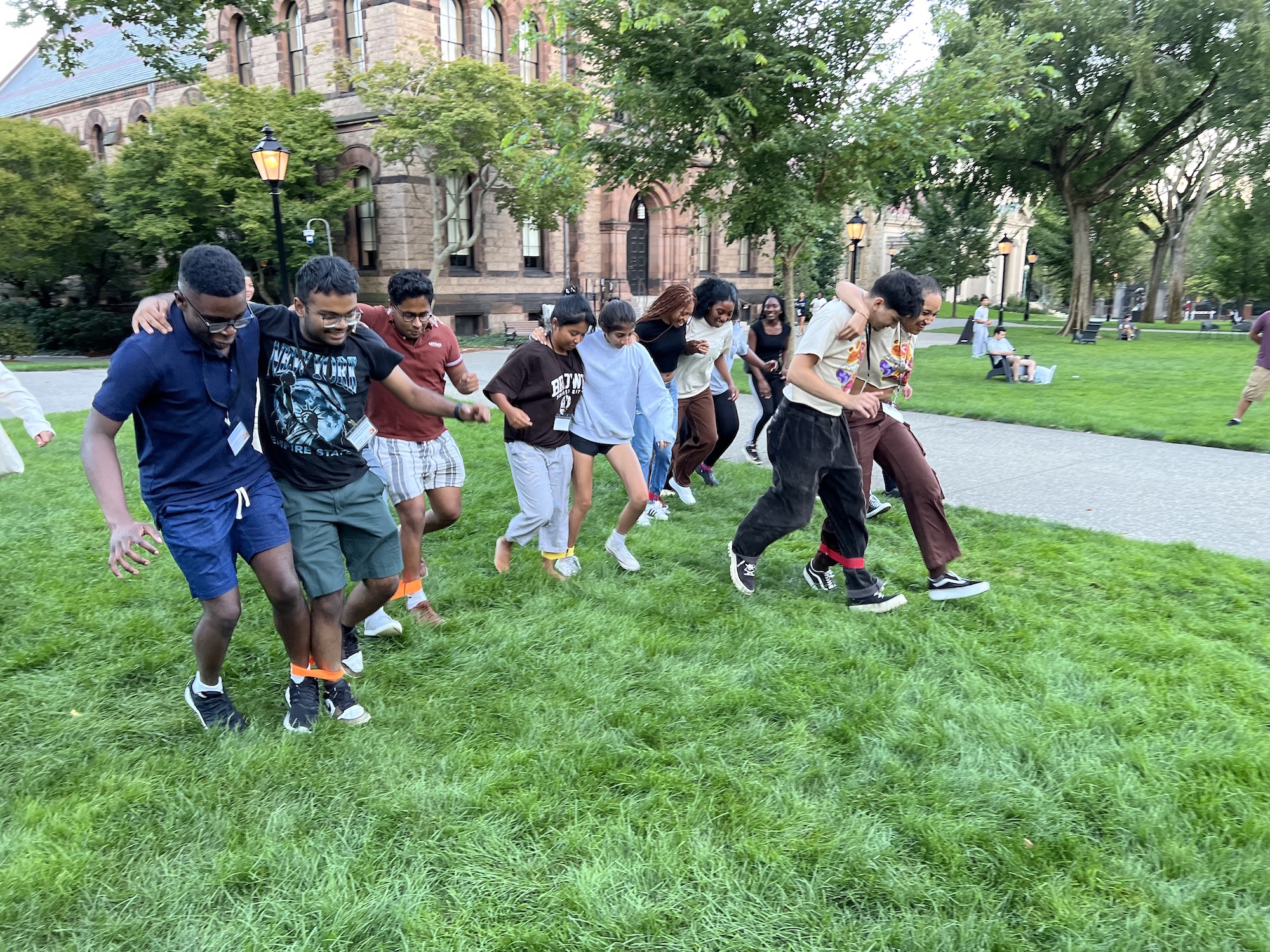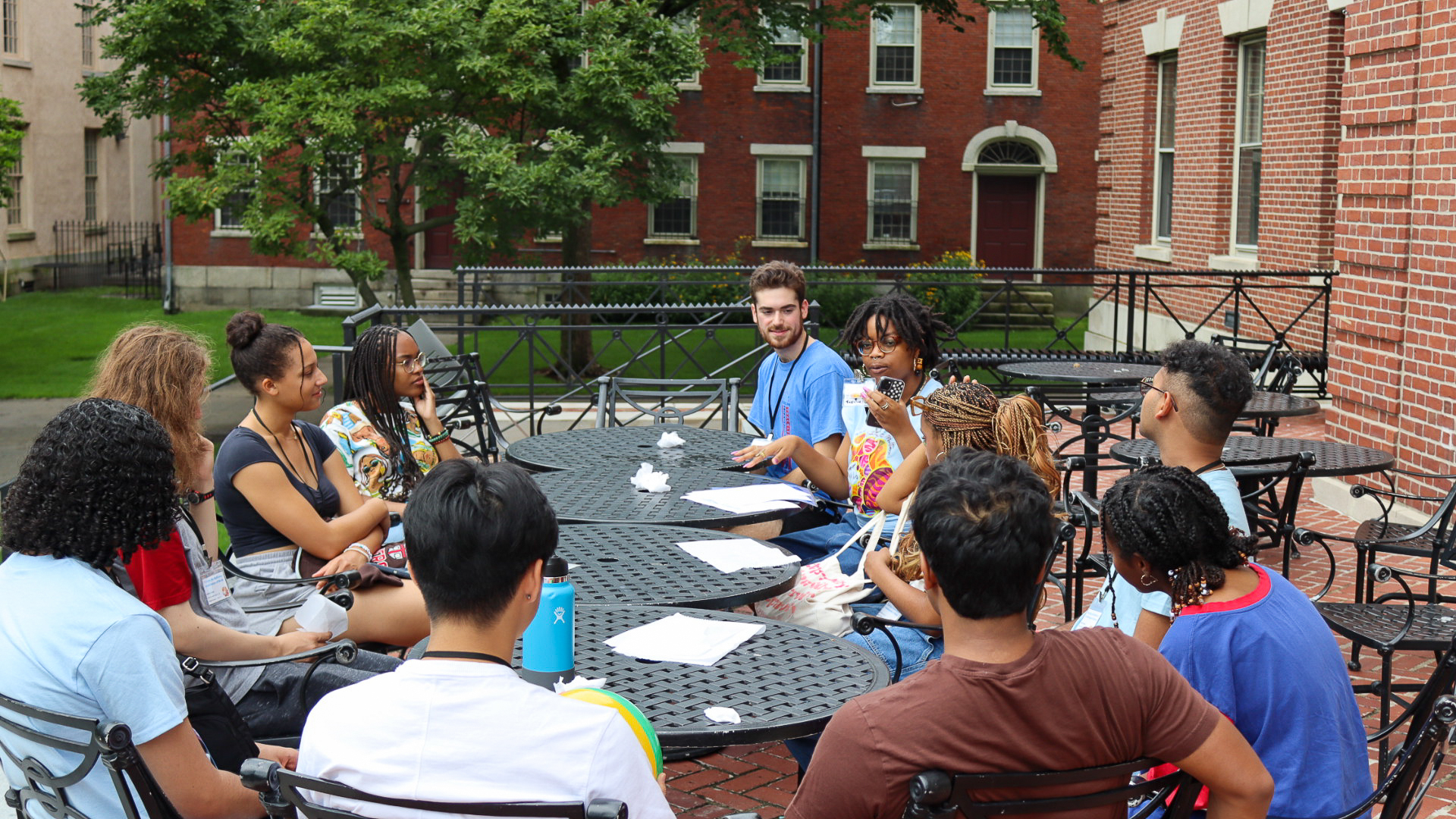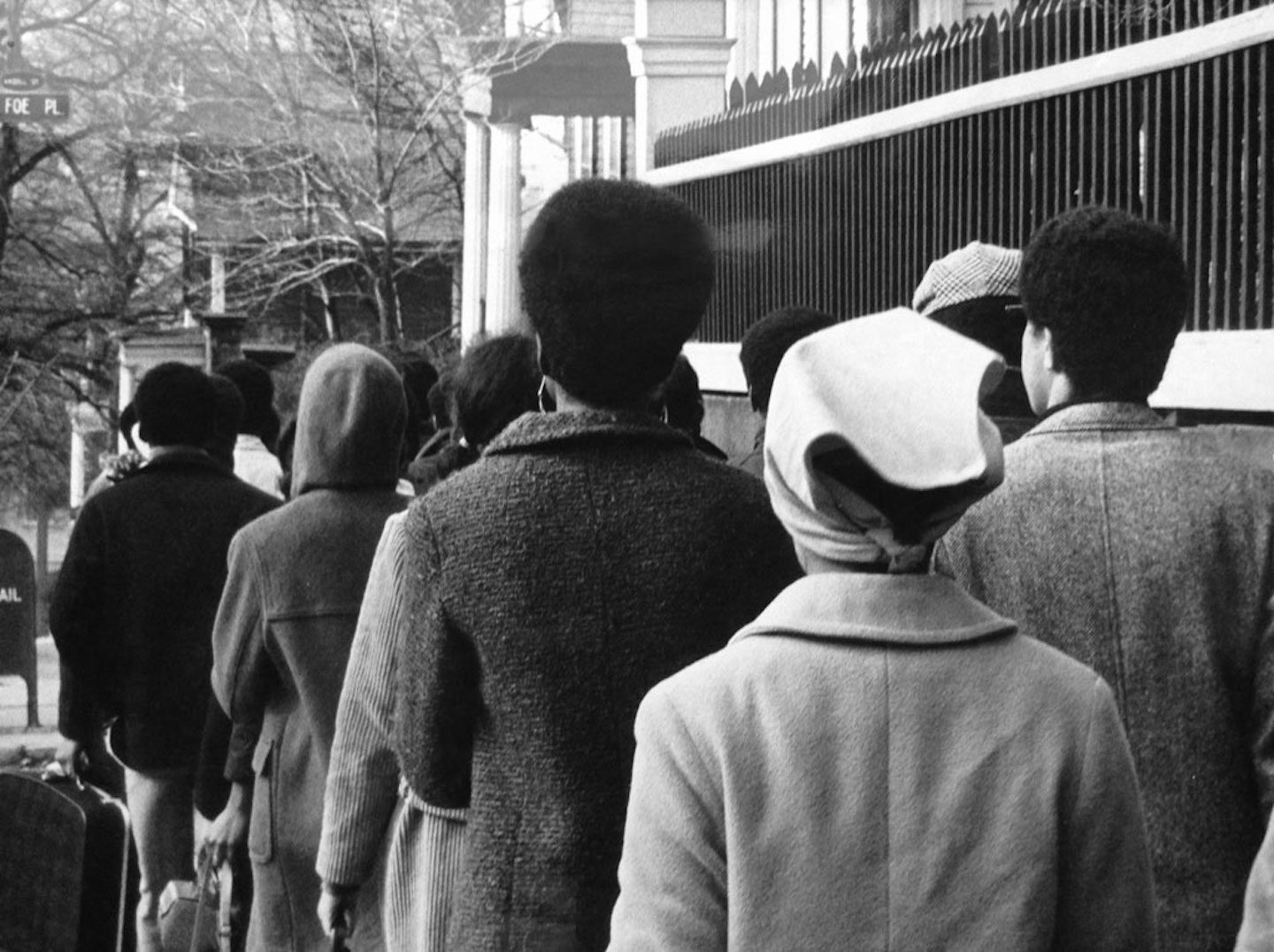The Third World Transition Program (TWTP) is a longstanding Brown tradition that helps incoming students explore identity, build community, and engage with systems of power and resistance. Grounded in student leadership and collective care, TWTP prepares students to thrive at Brown through critical dialogue, shared history, and meaningful connection.
About TWTP
Explore the history, purpose, and values of the Third World Transition Program.
About TWTP
Explore the history, purpose, and values of the Third World Transition Program.
About the Third World Transition Program
The Third World Transition Program (TWTP) is a five-day, four-night pre-orientation experience designed to help new Brown students reflect on their identities, build community, and explore systems of power and resistance.
 Led by student leaders and held on the Brown University campus, TWTP invites participants to explore their family histories, interests, and lived experiences while engaging with pressing issues affecting communities of color in the United States. Through workshops, dialogues, and activities, participants unpack systems of oppression—including racism, classism, cisheterosexism, religious discrimination, ableism, environmentalism, and imperialism—and begin to imagine strategies for change.
Led by student leaders and held on the Brown University campus, TWTP invites participants to explore their family histories, interests, and lived experiences while engaging with pressing issues affecting communities of color in the United States. Through workshops, dialogues, and activities, participants unpack systems of oppression—including racism, classism, cisheterosexism, religious discrimination, ableism, environmentalism, and imperialism—and begin to imagine strategies for change.
TWTP is not simply about navigating these systems, but about creating lasting community networks, building solidarity, and fostering belonging. Participants leave the program with a deeper understanding of themselves and others, as well as tools to thrive at Brown and beyond.
All incoming first-year students—regardless of race, color, national or ethnic origin—are welcome to apply. Attending TWTP gives participants the opportunity to:
- Create connections with fellow students and student leaders
- Explore Brown’s campus and the surrounding Providence area
- Access faculty and university staff before general Orientation begins
There is no cost to attend TWTP. Housing and meals are provided during the program, and your regular meal plan will begin with the start of Orientation.
Who Can Attend?

TWTP is open to all incoming first-year students, regardless of race, national, or ethnic origin. While the program focuses on issues affecting communities of color within the United States—including racism, classism, ableism, cisheterosexism, imperialism, religious discrimination, and environmental injustice—all students are welcome to apply.
Participants should be prepared to engage fully with the program, which includes critical conversations, workshops, and community-building activities. Alongside these discussions, participants take part in sessions focused on care, healing, and connection.
Why “Third World”?
 The Third World Transition Program (TWTP) was established in 1968, following protests led by Black women and students, who demanded greater support and resources for students of color at Brown. In this movement, students of diverse identities intentionally adopted the term Third World rather than minority, rejecting the language of powerlessness often associated with that word.
The Third World Transition Program (TWTP) was established in 1968, following protests led by Black women and students, who demanded greater support and resources for students of color at Brown. In this movement, students of diverse identities intentionally adopted the term Third World rather than minority, rejecting the language of powerlessness often associated with that word.
Although the term “Third World” may carry negative connotations outside of Brown, students of diverse identities at Brown continue to use it to express a shared social consciousness. This consciousness acknowledges the shared experiences of socially and politically marginalized communities and affirms the power of coming together across differences.
Using the term “Third World” reminds students of their ability to coalesce, communicate, and unite in the pursuit of a safer and freer community for all. At Brown, this language reflects not only a political awareness, but also a right, a willingness, and a necessity for people of diverse identities to define themselves, rather than be defined by others.
Meet the Team
Meet the BCSC Professional Staff, MPC Counselors, and TWTP Student Leaders